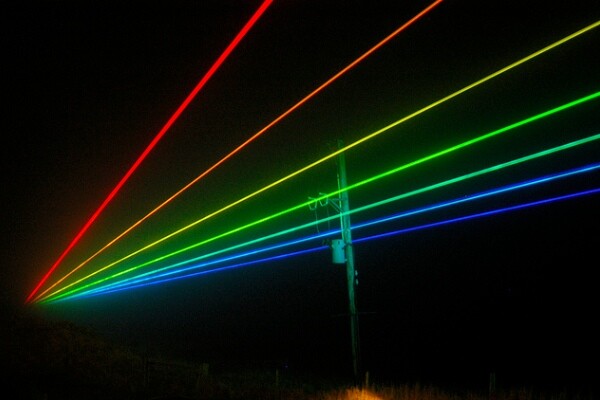Lasers Are Coming To Protect Our Food

While it may be a bit too early to officially don 2013 as "The Year of ________" in the food world just yet, the smart money has to be on filling that blank with the word "mislabeled."
Stories about the mislabeling of foods have have been popping up with almost the same frequency as morning coffee. Last December, there was this freak-out regarding inaccuracies in labeling causing allergic reactions. And just last week we got hit with a double-whammy of calorie listings being wrong and people perhaps eating both horse and donkey meat when they thought they were getting beef. Thus far this year it hasn't been a whole lot of good news in the "trusting labels" front, but thankfully, today, we have a little.
L.A. Weekly brings us this story of new technology maybe, one day, saving us all from losing our minds due to labeling errors. And of course because it's science, meaning it's awesome, it includes the use of lasers.
Scientists at the Rutherford Appleton Laboratory in England (which goes by the shortened moniker of RALSpace) have discovered a method in which lasers can be used to detect whether certain elements that would allow us to deem food "real" or "fake." Let's go to the science:
Specifically, the analysis of "carbon isotopic ratios can help identify its origin, and if it's bacterial in origin, it would mean a form of life occurred on Mars." And not only can the technology determine if there was life on Mars, but it can detect fake honey. All you have to do is burn a few milligrams and scan the carbon dioxide it releases.
(Big Important Tangent: As the above quote hints at, the technology being discussed was originally to be used measure carbon on the Mars surface but, lo and behold, there's a way that interstellar technology translates back here on Earth. This, actually, is not so uncommon when it comes to scientific breakthroughs. Space exploration, specifically the development of tools to allow that space exploration, actually has very large tangible benefits for normal folks. Neil DeGrasse Tyson reiterates in his book "Space Chronicles" over and over and over -- and over and over and, well, I'm only halfway through -- is that common everyday items like microwave ovens, car GPS systems, smoke detectors, even Brita filters are direct results of funding the space program. And now, this laser technology to help us from eating "fake" foods is another.)
As of now, we're still a ways away from these lasers helping out at the dinner table; we can only determine the difference between something that is "fake" and "real," not if something is, to use our recent example, donkey or horse or beef. But that's not to say the tech can't progress to the point. It isn't hard to imagine plugging in some kind of module that contains samples of "actual beef" that the laser would be able to compare to. And if the piece of meat in front of you doesn't trigger an approval, you'd send that steak back and ask for a real one.
But here's where the seemingly unrelated tangent above comes in: With this news, it's easy to dream up a world where everyone has little "laser label authenticators" in their pockets they can wand over their meals to make sure what they're eating is what they ordered. But we're far enough away from that realization that only the continual funding of space exploration, and science programs in general, can get us to achieve that goal. So just remember that the next time any kind of dinner debate occurs that includes the phrase "cut science funding."
Did I mention this thing is made of awesome lasers?